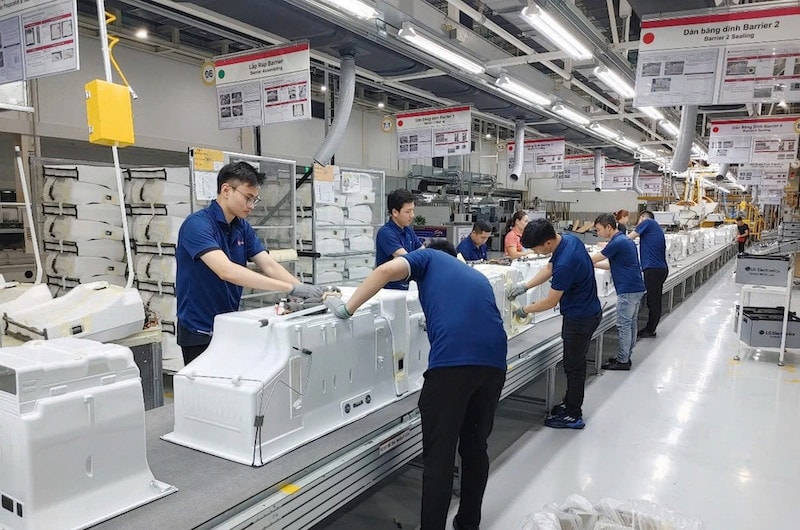Breakthrough policies to attract FDI flows into the industrial sector
Increasing the manufacturing sector's inherent strength and concentrating on industrial growth will help draw in and hold on to FDI flows.

Comparing 2024 to 2021, Vietnam's Index of Industrial Production (IIP) grew by 8.4%. However, industrial production grew more slowly in the fourth quarter after increasing quickly in the second and third quarters.
Notably, the Ministry of Industry and Trade's Vietnam Industry Agency reports that Vietnam has had outstanding success luring major FDI projects into industrial sectors.
The country's export turnover, the development of domestic supply chains, the creation of local jobs, and the state budget are all significantly impacted by the numerous large-scale FDI projects in the processing and manufacturing sectors. Numerous major companies, including Samsung, Apple, Marvell, NVIDIA, BYD, and others, have set up R&D facilities and expanded their factories in Vietnam.
Some investors have shown interest in Vietnam recently, but they have since shifted their investments to other nations. In addition to gradually losing the advantages of cheap labor, Vietnam's manufacturing sector has intrinsic limitations since the supporting industry has not grown in line with it.
As of November 2024, 17,754 FDI projects in the manufacturing and processing sectors, totaling USD 303.874 billion in pledged capital, out of over 41,720 FDI projects still in effect, represent more than 61% of the nation's total registered capital.
In keeping with our nation's industrialization and modernization policies, the aforementioned investment structure has a favorable effect on the growth of Vietnam's industries. However, the growth of domestic supporting industries has a significant impact on the economy's ability to absorb foreign technology and funds.
According to analysts, Vietnam lacks a system of domestic suppliers for components and product details to support the manufacturing lines and product value chains of multinational businesses investing in the country because the domestic supporting sector is still underdeveloped.
“Most manufacturing businesses are small, they produce little and only make around $1 billion in exports annually. Vietnam's industrial sector currently exports both directly to a number of major markets, including North America, Canada, the EU, Southeast Asia, Japan, and South Korea, as well as indirectly through clients or FDI companies in Vietnam”, said Ms. Truong Thi Chi Binh, chairwoman of the Vietnam Association of Supporting Industries.
In order to overcome this challenge, Ms. Truong Thi Chi Binh recommended that Government authorities assist domestic businesses in negotiating with FDI companies like Samsung to supply higher-value products, assisting them in meeting the demands of new partners in Vietnam by being proactive and ready.
In Ms. Truong Thi Chi Binh’s opinion, Vietnam faces a risk of losing out on significant FDI flows in the shifting global value chain and reinventing the industrial development model if it does not implement timely, effective, and practical policies to assist the growth of supporting industries.
With an emphasis on building supporting industries in line with the government's preferential and supportive policies, the Ministry of Industry and Trade has put up a number of specific solutions to keep drawing investment flows into the industrial sector. After that, foreign investors find a local supply system to be sufficiently alluring.
Additionally, Thailand and other nations in the region have found success by concentrating on developing supporting industries to draw in and hold on to foreign direct investment flows. Because Vietnam's supply chains are less competitive than those of Thailand or Indonesia, many foreign investors in manufacturing industries have chosen these nations both historically and currently.








